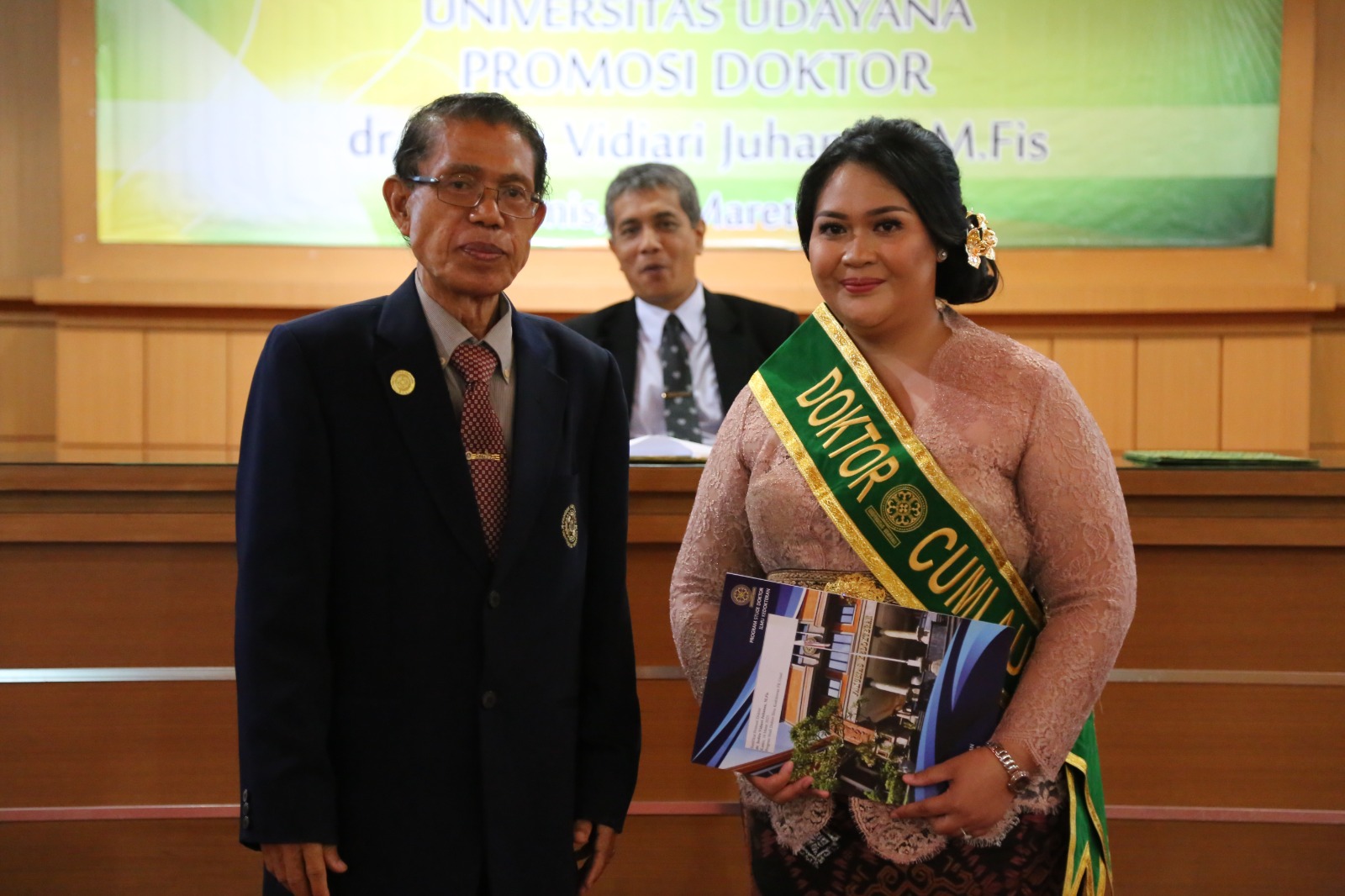New Doctor Proves That Moderate Intensity Exercise Is Better For Heart Health
New Doctor Proves That Moderate Intensity Exercise Is Better For Heart Health
Located in the Postgraduate Meeting Room Lt III, Denpasar Postgraduate Building, a Doctoral Promotion examination was held with promovenda candidate dr. Indira Vidiari Juhanna, M.Fis., with the dissertation title "Physiological Adaptation of Moderate Intensity Training (MIT) and High Intensity Interval Training (HIIT) in View of GATA-4 Protein Expression and Fat Profile in Wistar Rats on a High-Fat Diet". (16/3/2023)
A high-fat diet can cause changes in lipid profiles. Lipid profiles such as triglycerides (TG) and total cholesterol (TC), and high and low density lipoproteins (HDL, LDL) are involved in the regulation of microvascular function. Hyperlipidemia can increase myocardial injury caused by ischemia reperfusion (IR) injury, whereas the protein molecule GATA4 is a critical factor for the survival and hypertrophic response of cardiac myocytes after myocardial injury.
Comparison of MIT and HIIT in fat metabolism, release of FA from adipocytes for muscle contraction contributes to changes in the amount and composition of lipids in adipose tissue. The effect was shown to depend on the intensity of the exercise. Several studies have shown that endurance training leads to maximum lipid oxidation. Significant LXR expression levels as a result of moderate intensity endurance training or MIT.
The development of a new science (novelty) from this research is a new theoretical concept based on research that MIT is a type of cardioprotective exercise to restore physiological conditions in rats with a high-fat diet. It is hoped that increased physiological adaptation through GATA 4 cardiomyocyte expression in future studies can be applied to humans to reduce morbidity and mortality from cardiovascular disease in the future.
The implication of the results of this study is that MIT improves physiological adaptation by increasing GATA-4 protein expression in cardiomyocytes compared to HIIT. GATA4 is key to cardiomyocyte survival and an important regulator of postnatal cardiomyocyte response to a stressor as well as a potent cardiogenic factor important for cardiomyocyte differentiation. GATA-4 is also an antiapoptotic factor required for adaptive response and a key regulator of hypertrophy and hypertrophy-related genes in the heart and is a cardiac-expressed transcription factor that regulates structural gene synthesis and is cardioprotective.
The exam was led by the Dean of FK Unud, Dr. dr. Komang Januartha Putra Pinatih. M.Kes with the testing team:
1. Dr. dr. I Nyoman Adiputra, M.OH.,PFK (Promoter)
2. Prof. Dr. dr. I Putu Gede Adiatmika, M.Kes (Co-promoter I)
3.Dr. dr. I Made Muliarta, S.Ked., M.Kes (Co-promoter II)
4. Dr. dr. J . Alex Pangkahila, M.Sc., Sp.And(KSAAM)
5. Prof. dr. Ketut Tirtayasa, MS., AIF
6. Dr. dr. I Made Jawi, M. Kes
7. Dr. dr. I Wayan Putu Sutirta Yasa, M.Si
8.Dr. dr. Ni Made Linawati, M.Sc
9.Dr. dr. Susy Purnawati, M.KK
10.Dr. dr. Luh Putu Ratna Sundari, S.Ked., M.Biomed
While academic invitations are:
1.Dr. dr. I Nyoman Wande, S.Ked., Sp.PK(K)
2.Dr. Luh Made Indah Sri Handari Adiputra, S.Psi., M.Erg
3.Dr. dr. I Made Krisna Dinata, M.Erg
4.Dr. dr. I Putu Adiartha Griadhi, S.Ked., M.Fis., AIFO
5.Dr. dr. Putu Ayu Asri Damayanti, M.Kes
In this exam, Dr. dr. Indira Vidiari Juhanna, M.Fis., was declared graduated as the 373rd Graduate Doctor of the Doctoral Degree in Medical Sciences, Faculty of Medicine, Udayana University with the Cumlaude predicate





